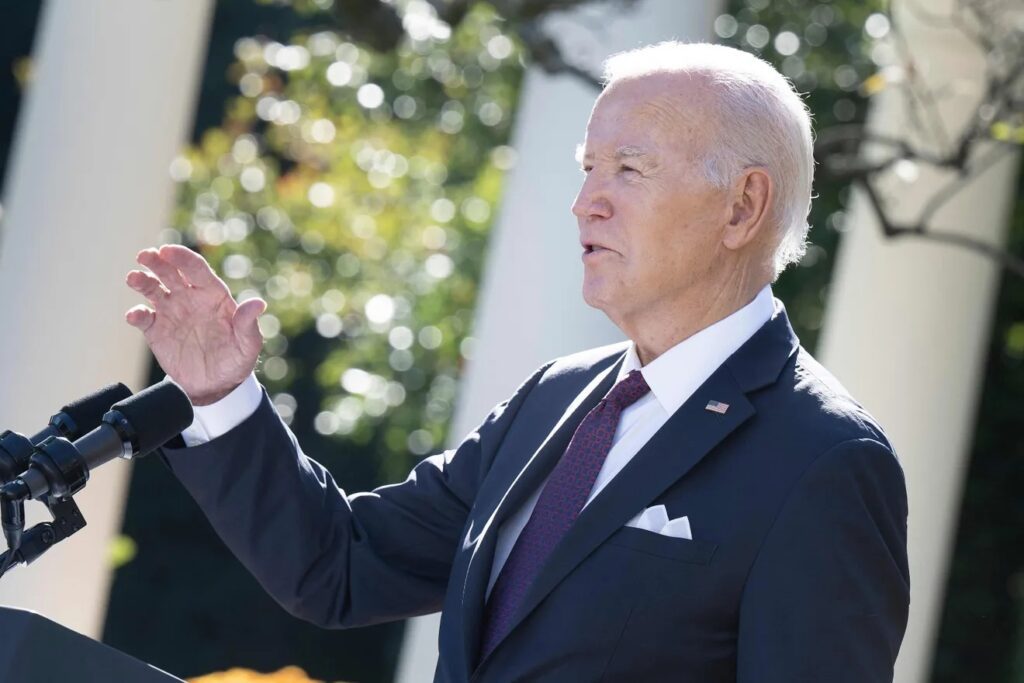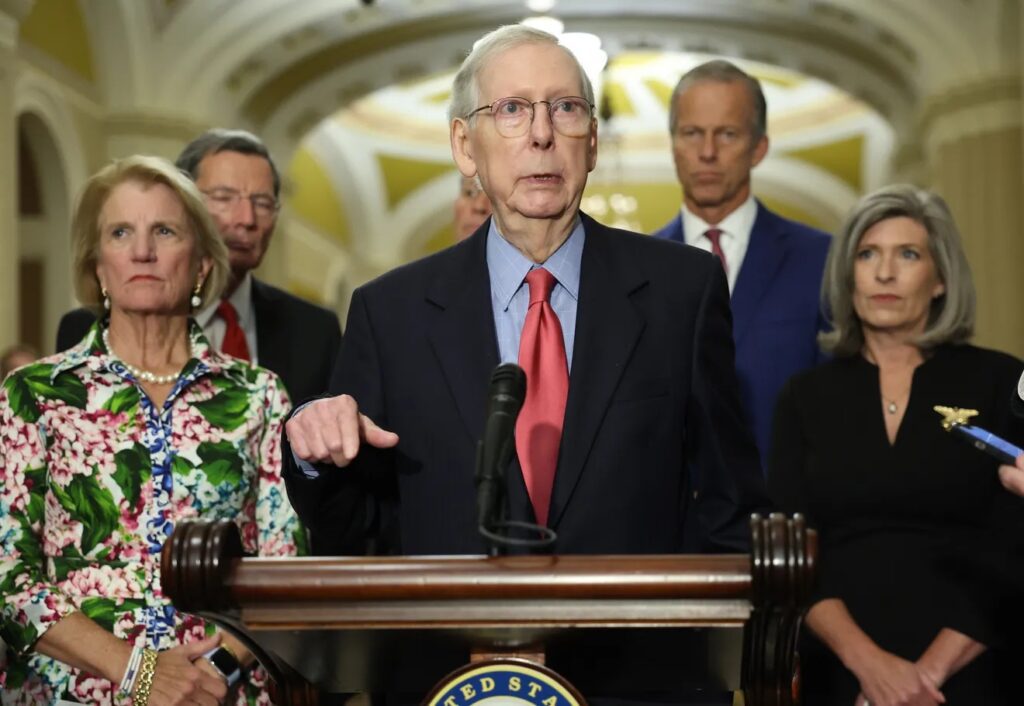Test politicians, and surgeons, for competency. That’s better than age limits.
A law requiring mandatory physical and mental testing of the president and members of Congress past a certain age would not be age discrimination, per se.
By Greg Ganske, MD
On October 30, 2023
In March 1995, I sat in the House of Representatives listening to 70-year-old Rep. Henry Hyde, an Illinois Republican, give a remarkable speech against term limits. Hyde, a giant of a man at 6-foot-3, 280 pounds, with a shock of white hair, still moved with grace from his Georgetown basketball days. In the 1943 NCAA semifinals, he outplayed DePaul’s 6-foot-10 All-American George Mikan.
Hyde argued that multiple terms help elected officials gain institutional knowledge and build relationships needed to be effective in passing legislation. The C-SPAN cameras caught me listening on the floor of the House with a bemused look when he said, “When the dentist bends down over you with the drill whirring, don’t you hope he has done that before? When the neurosurgeon has shaved your head and made the pencil mark on your skull where they’re going to have the incision and he approaches with the electric saw, ask him one question: ‘Are you a careerist?’” Laughter filled the chamber.
I wondered then if Henry knew about the debate in medicine on the right time for older surgeons to retire and if it should be mandatory. Medicine has struggled with this question for a long time as evidenced in papers by Dr. I.A. Bunkin in 1983 in the Journal of the American Medical Association and more recent work by doctors like Don Trunkey, Lazar Greenfield, and S.H. Miller. Are there lessons that can apply to the current aging political leadership, too?
When he was 67, Dr. Will Mayo abruptly announced after an operation that it was his last: “I want to stop while I’m still good. I don’t want to go on like some others I’ve seen, past my prime, doing the surgery that younger, surer men ought to be doing.” He quit at the top of his game. I retired a few years ago from my own surgical practice feeling the same. Contrast this with Dr. Michael DeBakey who at the age of 91 said, “I would not mind being operated on by a surgeon of 91,” which sounds like our aging politicians.
There is no mandatory retirement age for physicians in the United States. Furthermore, for many decades federal laws forbidding age discrimination have made it almost impossible to mandate surgeon retirement based on age and impossible for hospitals and other medical facilities to withdraw surgical privileges based only on age.
However, knowledge and experience can only make up for loss of strength, eyesight, steadiness of dexterity, and cognition for a while.

Why professionals won’t retire from demanding jobs
Why do surgeons resist retiring? Some have little insight into their declining skills. For many retiring from surgery means a loss of self-esteem as they see their own value in performing surgery. Most surgeons exude a sense of confidence, and this is salutary for patients. No patient wants to see a surgeon who lacks confidence in his or her surgical skills. However, a good surgeon is only one or two bad operations from a loss of self-respect. If the decision to retire comes at the same time that his physical and mental skills are waning, then he may think death must not be far behind. I know many retired surgeons who have experienced this feeling.
The lifestyle change from that of a busy surgeon to a retiree is difficult. One day the surgeon is confronting life-and-death decisions to save lives and barking orders to educated staff who instantly execute his orders. The next day he is sleeping late and working in the yard or playing golf. Is it any wonder that many keep operating long past their prime?
Similarly, politicians facing declining mental and physical status resist retirement. They are ultra busy one day dealing with important issues, have lots of staff jumping to carry out their orders, bask in the respect of the office, and gain a sense of self-worth by helping people. A politician’s sense of his or her own self worth and importance is intimately tied to holding office. I know of many politicians who go through a difficult time adjusting to being out of office, just like many surgeons have a difficult time adjusting to mundane life. Some miss it so much that they become depressed. It is hard for many who are used to deference for decades to (“Yes, doctor”; “No, Congressman”) adjust to again being a Common Joe. Thus, they grasp holding onto office or the scalpel for dear life.
There are mandatory retirement ages for airline pilots and judges in most states. In Canada, senators may only hold office until the age of 75. Polling shows that more than half of Americans say there should be a maximum age limit for holding office, though there is less agreement on the exact cut off age. The details are important, the devil is in the details.

Test surgeons and politicians regularly for competency
I favor a law requiring testing for physical and mental competency for both surgeons and politicians rather than mandating a specific retirement age. I learned cleft lip surgery from a surgeon who at 85 still does beautiful repairs. I operated with Dr. Paul Tessier, who founded the field of craniofacial surgery, and at age 67 was still unparalleled. History is replete with political leaders who have rebuilt nations while in their 80s such as Ben Franklin (82) at the U.S. Constitutional Convention, Konrad Adenauer (87) in postwar Germany, and Charles DeGaulle, who unified France in his 70s.
But these individuals are the exception, rather than the norm. They should at that age be tested because the data shows that most of us lose cognition and skills as we age.
A law concerning aged surgeons might pass constitutional muster against age discrimination. The courts allow commercial pilot age restrictions on the grounds that the safety of the public is a “compelling state interest.” Protecting the safety of patients should be a substantial state interest, too. However, a better way is to require periodic mandatory physical and mental testing of surgeons past the age of 65 or 70.
Similarly, a law requiring mandatory physical and mental testing of the president and members of Congress past a certain age would not be age discrimination, per se, but rather testing for the abilities to handle very important duties and is also of compelling national interest. The president of the United States must be mentally competent to handle the proverbial call in the middle of the night. Unclear thinking could result in the fate of millions of lives or even civilization.
What to do with the doctor or politician that shows verifiable testing of significant signs of decline? The doctor’s license can be removed by the state board of medical registration. It is possible that a law on removing a politician from office for mental decline would require a Constitutional Amendment. This should be considered, as the stakes are high. Currently, the 25th Amendment is very specific and limited for the president of the United States.
Henry Hyde would say, “just vote the mentally incompetent out!” But this is easier said than done as evidenced by aged politicians who get reelected time and again in safe districts or heavily red or blue states. The voters should at least know if elderly candidates have passed minimal physical and mental competency tests. Hyde died of complications from open heart surgery at the age of 81. His surgeon was probably one of the best, but I wonder if, as his heart surgeon approached with the scalpel, he would have been better served by asking, “Have you passed your competency tests?” instead of, “Are you a careerist?”
This piece was republished from the Des Moines Register.